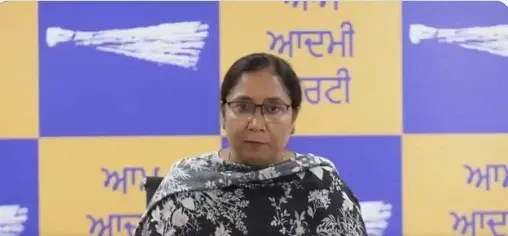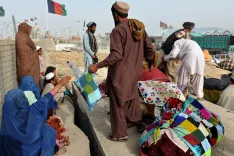How is the Punjab government using DNA testing to combat child begging?

Synopsis
Key Takeaways
- Punjab launches 'Project Jeevanjot II' to combat child begging.
- DNA testing implemented to verify parentage of children.
- Strict legal action against adults forcing children to beg.
- Significant focus on rescue operations and child welfare.
- Proactive monitoring ensures children's safety post-rescue.
Chandigarh, July 18 (NationPress) The Minister for Social Security, Women and Child Development, Baljit Kaur, announced on Friday that the Punjab government has ramped up its initiatives to eliminate child begging with the unveiling of 'Project Jeevanjot II'.
As part of these enhanced measures, the state has initiated DNA testing in cases where there is uncertainty regarding whether the adult accompanying a child begging is their biological parent.
The Minister emphasized that any adult found coercing unrelated minors into begging will face severe legal repercussions.
According to her, DNA tests will be ordered by the Deputy Commissioner, and during the period of 15 to 20 days required for the report, the children will be safely housed in Bal Ghar, a government facility. If the results indicate that the adults are not the biological parents, strict legal action will follow, including charges under anti-trafficking and child protection laws.
Minister Kaur reported that an FIR has already been filed in Bathinda, where 20 children were rescued from villages suspected of exploitation.
She highlighted that Punjab is leading the nation as the first state to launch such a comprehensive and proactive program independently, without waiting for directives from the Central Government.
In the past nine months, through 753 rescue operations, 367 children have been saved, with 350 of them reunited with their families, while 17 children whose parents remain unidentified have been placed in Child Care Homes (Bal Ghar).
A total of 150 rescued children were from other states and have been safely returned to their families, the Minister added.
Additionally, 183 children have been enrolled in schools, while 13 children under the age of six have been registered in Anganwadi centers for early childhood care.
Moreover, 30 children from extremely impoverished backgrounds have been included in a sponsorship program, receiving Rs 4,000 per month to ensure uninterrupted education.
Furthermore, 16 children are now beneficiaries of the state's pension scheme, receiving Rs 1,500 monthly.
Minister Kaur stated, “When we witness small children compelled to beg on our streets, it not only undermines their dignity but also raises significant concerns about our society's collective conscience and the honor of Punjab itself.”
The state government commenced this mission in September 2024, with dedicated rescue teams forming district-level committees to identify and rescue children found begging throughout the state.
She asserted that the Aam Aadmi Party government is not merely rescuing children but is committed to ongoing oversight.
“Every three months, district-level child protection teams will verify whether these children continue to attend school and are not returning to the streets,” she stated.
Despite these efforts, 57 children have gone missing from the schools or homes they were placed in.
This raises a troubling question: Are these children genuinely safe with their families, or have they fallen prey to human trafficking or begging syndicates?
To tackle these issues, Punjab has upgraded and intensified its mission under 'Project Jeevanjot II'.
Within the last two days, 18 rescue operations were carried out across various districts, resulting in the rescue of 41 children.
'Project Jeevanjot-2' incorporates provisions from the Beggary Act, the Juvenile Justice (Care and Protection of Children) Act, guidelines from the Supreme Court and High Court, along with special operating procedures issued by the Punjab State Child Protection Commission.
Under this initiative, parents who force their children to beg will be subject to legal action. They may receive a warning for a first offense, but repeated violations will lead to their classification as 'unfit guardians'. Such children will then enter adoption pathways, ensuring their future is secured.










